Filter by
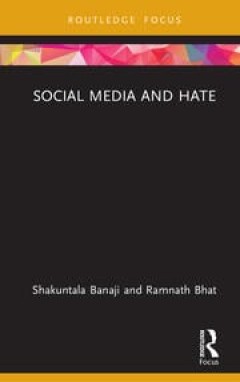
Social media and hate
Using expert interviews and focus groups, this book investigates the theoretical and practical intersection of misinformation and social media hate in contemporary societies. Social Media and Hate argue that these phenomena, and the extreme violence and discrimination they initiate against targeted groups, are connected to the socio-political contexts, values, and behaviors of users of social m…
- Edition
- -
- ISBN/ISSN
- 9781003083078
- Collation
- 130p.
- Series Title
- -
- Call Number
- 302.231 BAN s
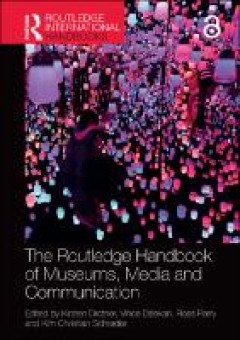
The routledge handbook of museums, media and communication
Museums today find themselves within a mediatised society, where everyday life is conducted in a data-full and technology-rich context. In fact, museums are themselves mediatised: they present a uniquely media-centred environment, in which communicative media is a constitutive property of their organisation and of the visitor experience. The Routledge Handbook of Museums, Media and Communicatio…
- Edition
- -
- ISBN/ISSN
- 9781317197447
- Collation
- xviii, 339p. : ill.
- Series Title
- -
- Call Number
- 069 SCH t

Arab Media Systems
This volume provides a comparative analysis of media systems in the Arab world, based on criteria informed by the historical, political, social, and economic factors influencing a country’s media. Reaching beyond classical western media system typologies, Arab Media Systems brings together contributions from experts in the field of media in the Middle East and North Africa (MENA) to provide v…
- Edition
- -
- ISBN/ISSN
- 9781800640610
- Collation
- 368p. ; ill.
- Series Title
- -
- Call Number
- 302.230953 CAR a
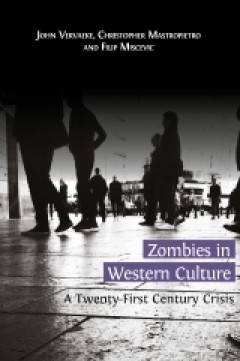
Zombies in western culture: a twenty-first century crisis
Why has the zombie become such a pervasive figure in twenty-first-century popular culture? John Vervaeke, Christopher Mastropietro and Filip Miscevic seek to answer this question by arguing that particular aspects of the zombie, common to a variety of media forms, reflect a crisis in modern Western culture. The authors examine the essential features of the zombie, including mindlessness, ugl…
- Edition
- -
- ISBN/ISSN
- 9781783743308
- Collation
- viii, 93 p. : ill. : ind. ; 24 cm
- Series Title
- -
- Call Number
- 398.21 VER z
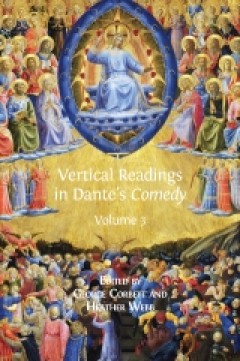
Vertical readings in dante's comedy : volume 3
Vertical Readings in Dante’s Comedy is a reappraisal of the poem by an international team of thirty-four scholars. Each vertical reading analyses three same-numbered cantos from the three canticles: Inferno i, Purgatorio i and Paradiso i; Inferno ii, Purgatorio ii and Paradiso ii; etc. Although scholars have suggested before that there are correspondences between same-numbered cantos that beg…
- Edition
- -
- ISBN/ISSN
- 9781783743605
- Collation
- xi, 266 p. ; ill
- Series Title
- -
- Call Number
- 851.1 COR v
Civic media literacies : re-imagining human connection in an age of digital a…
Civic life today is mediated. Communities small and large are now using connective platforms to share information, engage in local issues, facilitate vibrant debate, and advocate for social causes. In this timely book, Paul Mihailidisexplores the texture of daily engagement in civic life, and the resources—human, technological, and practical—that citizens employ when engaging in civic actio…
- Edition
- -
- ISBN/ISSN
- 9781315526058
- Collation
- xiv, 164 p.
- Series Title
- -
- Call Number
- 302.23 MIH c
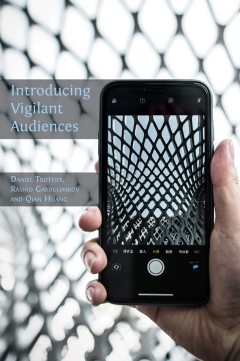
Introducing vigilant audiences
This ground-breaking collection of essays examines the scope and consequences of digital vigilantism – a phenomenon emerging on a global scale, which sees digital audiences using social platforms to shape social and political life. Longstanding forms of moral scrutiny and justice seeking are disseminated through our contemporary media landscape, and researchers are increasingly recognising th…
- Edition
- -
- ISBN/ISSN
- 9781783749041
- Collation
- ix, 362 p. ; ill
- Series Title
- -
- Call Number
- 302.231 TRO i

A fleet street in every town: the provincial press in England, 1855-1900
At the heart of Victorian culture was the local weekly newspaper. More popular than books, more widely read than the London papers, the local press was a national phenomenon. This book redraws the Victorian cultural map, shifting our focus away from one centre, London, and towards the many centres of the provinces. It offers a new paradigm in which place, and a sense of place, are vital to the …
- Edition
- -
- ISBN/ISSN
- 9781783745616
- Collation
- 455 p. : ill. : ind. ; 24 cm
- Series Title
- -
- Call Number
- 941.081 HOB a
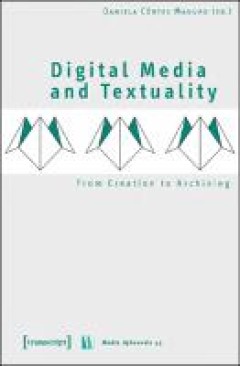
Digital media and textuality: from creation to archiving
Due to computers' ability to combine different semiotic modes, texts are no longer exclusively comprised of static images and mute words. How have digital media changed the way we write and read? What methods of textual and data analysis have emerged? How do we rescue digital artifacts from obsolescence? And how can digital media be used or taught inside classrooms? These and other questions ar…
- Edition
- -
- ISBN/ISSN
- 9783839440919
- Collation
- 284 p. : ill.
- Series Title
- -
- Call Number
- 006.7 MAD d

Engines of Order : A Mechanology of Algorithmic Techniques
Over the last decades, and in particular since the widespread adoption of the Internet, encounters with algorithmic procedures for ‘information retrieval’ – the activity of getting some piece of information out of a col-lection or repository of some kind – have become everyday experiences for most people in large parts of the world.
- Edition
- -
- ISBN/ISSN
- 9789048537419
- Collation
- 353 p.: ill.
- Series Title
- -
- Call Number
- 518.1 RIE e
 Computer Science, Information & General Works
Computer Science, Information & General Works  Philosophy & Psychology
Philosophy & Psychology  Religion
Religion  Social Sciences
Social Sciences  Language
Language  Pure Science
Pure Science  Applied Sciences
Applied Sciences  Art & Recreation
Art & Recreation  Literature
Literature  History & Geography
History & Geography